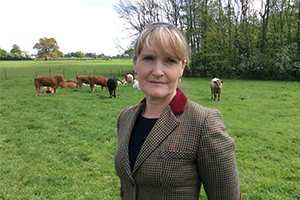5 areas to consider when planning to diversify
Diversification is a hot topic in this current climate. From glamping and tea rooms to experience days and selling Christmas trees, farmers are finding new ways to make ends meet.
Johanne Spittle agricultural and commercial specialist at Ware & Kay Solicitors says ‘Diversification can help to transform an agricultural business, but only if it is properly thought through, with the benefit of professional advice and a strong underlying business plan.’
1. Type of diversification
The type of diversification that will work best for you depends on your circumstances, and, if you are a tenant farmer, the type of diversified activity will depend upon what is allowed under your tenancy or permitted by your landlord.
Some of the most successful diversifications are those that utilise existing farm resources and infrastructure, or which tap into a gap in the local market.
2. Business case
Any new business venture will need to be financially viable, so you need to gauge how much it will cost to set up and run, whether there are any grants or reliefs available, how much revenue you expect to generate, the impact it will have on your existing business and how it will affect cash-flow and turnover.
3. Funding
Access to capital is essential to get a new venture off the ground. As well as commercial loans and private finance, you may be eligible for grants or other types of funding. For example, you may be able to access money from the Rural Development Programme for England if your proposed diversification will improve the environment, increase farming or forestry productivity or help to grow the rural economy.
If you are a farm tenant looking to diversify, you will need to investigate your options carefully as raising capital may be hard without collateral.
4. Legal requirements
With new ventures, come new legal and regulatory obligations. For example, although some diversification initiatives do not require planning permission there are others that do, such as the selling of processed meat to the public.
You may need to obtain specific licences or certificates, for example to enable you to butcher your own livestock or to sell food from a farm-based café.
You may also need to adhere to trading standards requirements for the sale of packaged goods, or to comply with specific health and safety requirements. You may also need to acquire enhanced public liability insurance.
5. Personal implications
You need to consider how the decisions you make will impact on your family, particularly your children if there is an expectation that they will inherit the farm or succeed to your farm tenancy.
‘You also need to plan carefully to ensure there are no unintended consequences with regards to your tax liability or your eligibility for tax relief’, explains Johanne.
It is important to seek legal advice at an early stage to ensure the next step you take is the right one and that it is structured to secure the long-term future of you and your family.
For more information on farm diversification or any other commercial issue, contact Johanne Spittle on 01904 716000 or email johanne.spittle@warekay.co.uk
- Log in to post comments

